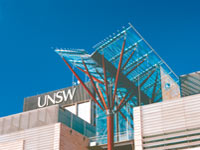|
|||||||||||||||||||||||||||||||||||||||||||||||
| Circuits and Signals - ELEC2134 | |||||||||||||||||||||||||||||||||||||||||||||||

Description Circuit elements - energy storage and dynamics. Ohm's Law, Kirchhoff's Laws, simplifying networks of series/parallel circuit elements. Nodal analysis. Thivenin and Norton equivalents, superposition. Operational amplifiers. Transient response in first-order RLC circuits. Solutions via solving differential equations. Transient response in second-order RLC circuits. State equations, zero input response, zero state response. Using MATLAB to solve state equations. Sinusoidal signal: frequency, angular frequency, peak value, RMS value, and phase. DC vs AC, average vs RMS values. AC circuits with sinusoidal inputs in steady state. Use of phasor and complex impedance in AC circuit analysis. AC power (real, reactive, apparent), power factor, leading/lagging. Resonance. Transformers and coupled coils. Laplace transforms of signals and circuits. Network functions and frequency response. Periodic signals and Fourier series. Introduction to filter design. Introduction to nonlinear circuits and small signal analysis.
|
|||||||||||||||||||||||||||||||||||||||||||||||


